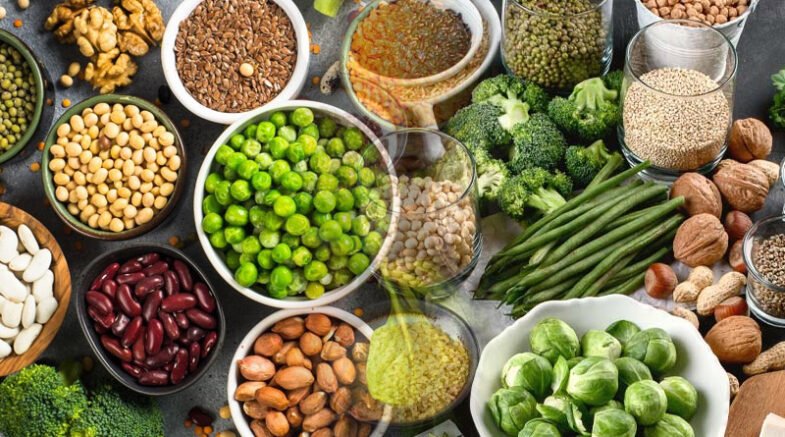Apart from protein, soybeans are rich in vitamins and minerals. They are a good source of vitamin K, vitamin C, folate, potassium, and iron.

Soybeans have long been known as a popular plant-based protein source, especially for vegetarians and vegans. However, the nutritional and health benefits of soybeans go far beyond just protein content. In this article, we will explore the nutritional and health value of soybeans.
Nutritional Value:
Soybeans are an excellent source of protein, with around 36 grams of protein per 100 grams of soybeans. This is comparable to animal-based protein sources such as chicken and beef. Soybeans also contain all nine essential amino acids, making it a complete protein source.
Apart from protein, soybeans are rich in vitamins and minerals. They are a good source of vitamin K, vitamin C, folate, potassium, and iron. Soybeans are also high in fiber, with around 9 grams of fiber per 100 grams of soybeans. Fiber is essential for digestive health and helps reduce the risk of chronic diseases such as heart disease, diabetes, and cancer.
Health Benefits
Soybeans have been extensively studied for their health benefits. Here are some of the key benefits associated with consuming soybeans:
Soybean are highly nutritious food that offer many health benefits. They are rich source of protein, vitamins ,minerals ,fibers and may help to reduce heart disease certain cancer and other chronic diseases.
May reduce the risk of heart disease:
Soybeans contain compounds called isoflavones, which have been shown to have a cholesterol-lowering effect. This can help to reduce the risk of heart disease, as high cholesterol levels are a major risk factor for heart disease.
May improve bone health:
Plant based protein source, soybeans are a good source of calcium, magnesium, and other minerals that are essential for bone health. Some studies have also suggested that the isoflavones in soybeans may help to reduce the risk of osteoporosis in postmenopausal women.
May reduce the risk of certain cancers:
Studies have suggested that consuming soybeans may help to reduce the risk of certain cancers, including breast cancer, prostate cancer, and colon cancer. This may be due to the isoflavones in soybeans, which have been shown to have anti-cancer properties.
May help to manage diabetes:
Soybeans have a low glycemic index, which means that they do not cause a rapid increase in blood sugar levels. This makes soybeans a good food choice for people with diabetes. Some studies have also suggested that consuming soybeans may help to improve insulin sensitivity in people with diabetes.
May promote weight loss:
Soybeans are a low-calorie, nutrient-dense food, which makes them a good food choice for people who are trying to lose weight. The high fiber content of soybeans also helps to promote feelings of fullness, which can help to reduce overall calorie intake.
How to Incorporate Soybeans into Your Diet
There are many ways to incorporate soybeans into your diet. Here are some ideas:
Use soy milk instead of cow’s milk in your coffee or cereal. Use tofu instead of meat in stir-fries, curries, and other dishes. Add cooked soybeans to soups, stews, and chili.
Use soy flour in baking recipes to boost the protein content of your baked goods. Snack on roasted soybeans, which are a crunchy, high-protein snack.
Conclusion:
Soybeans are a nutritious food that offers a range of health benefits. They are an excellent source of protein, vitamins, and minerals, and are low in calories.
Soybeans have been shown to reduce the risk of heart disease, diabetes, and certain cancers. Adding soybeans to your diet can be an excellent way to improve your overall health and well-being.
